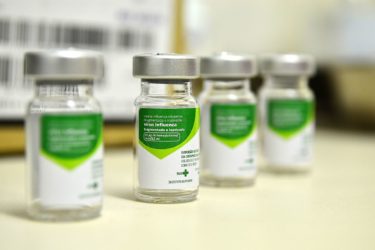Year: 2010
How not to consult your biostatistician before doing an experiment
A friend of mine at work sent this video to me in great amusement. I just hope he wasn’t making a comment on my behavior when it comes to dealing with our biostatisticians. I have, of course, seen investigators approach biostatistians this late in the game. Not that I’ve ever flirted with this sort of behavior, of course. At least the researcher...
PTSD Breakthrough?: It’s Not Science Just Because Someone Says So
It infuriates me when someone misappropriates the word “science” to promote treatments that are not actually based on science. I have just read a book entitled The PTSD Breakthrough: The Revolutionary Science-Based Compass Reset Program by Dr. Frank Lawlis, a psychologist who is the chief content advisor for Dr Phil and The Doctors. There is very little science in the book and...
Clinical equipoise versus scientific rigor in cancer clinical trials
A critical aspect of both evidence-based medicine (EBM) and science-based medicine (SBM) is the randomized clinical trial. Ideally, particularly for conditions with a large subjective component in symptomatology, the trial should be randomized, double-blind, and placebo-controlled. As Kimball Atwood pointed out just last week, in EBM, scientific prior probability tends to be discounted while in SBM it is not, particularly for therapies...
Evidence-Based Medicine, Human Studies Ethics, and the ‘Gonzalez Regimen’: a Disappointing Editorial in the Journal of Clinical Oncology Part 2
NB: If you haven’t yet read Part 1 of this blog, please do so now; Part 2 will not summarize it. … At the end of Part 1, I wrote: We do not need formal statistics or a new, randomized trial with a larger sample size to justify dismissing the Gonzalez regimen. In his editorial for the JCO, Mark Levine made a...

Using attacks on science by the anti-vaccine movement as a “teachable moment”
A new study on the connection between vaccines and autism demonstrates two things: there is no connection, and those who think there is are not interested in science unless it supports what they already believe.
Evidence-Based Medicine, Human Studies Ethics, and the ‘Gonzalez Regimen’: a Disappointing Editorial in the Journal of Clinical Oncology Part 1
Background: the distinction between EBM and SBM An important theme on the Science-Based Medicine blog, and the very reason for its name, has been its emphasis on examining all the evidence—not merely the results of clinical trials—for various claims, particularly for those that are implausible. We’ve discussed the distinction between Science-Based Medicine (SBM) and the more limited Evidence-Based Medicine (EBM) several times,...
Aspartame – Truth vs Fiction
If you believe everything you read on the internet, then it seems that a chemical found in thousands of products is causing an epidemic of severe neurological and systemic diseases, like multiple sclerosis and lupus. The FDA, the companies that make the product, and the “medical industrial complex” all know about the dangers of this chemical but are hiding the truth from...
Brain Balance
A member of Quackwatch’s Healthfraud discussion list recently reported from a health fair: One booth was a bit of a mystery for me: Brain Balance. “Is your child struggling with ADHD, dyslexia, autism, Asperger’s, Tourette’s, or other related disorders?” A quick glance at their website makes it seem that they may be legitimate. No, a quick glance at their website makes it...

The final nail in the mercury-autism hypothesis?
Another study. Another failure to link thimerosal to a higher risk of autism. Can we just bury the claim that thimerosal in vaccines causes autism, already?

Chronic Fatigue Syndrome: Lots of Speculation
Humans love to find patterns in the world. Sometimes patterns exist, sometimes they are imaginary. Sometimes you can see a pattern that may be interesting and ignore its significance. As a resident I used to say that anyone who smokes three packs of cigarettes a day has to be schizophrenic, it was meant more as a joke, when, in fact, it was...

